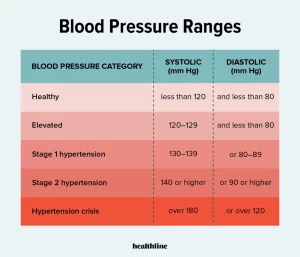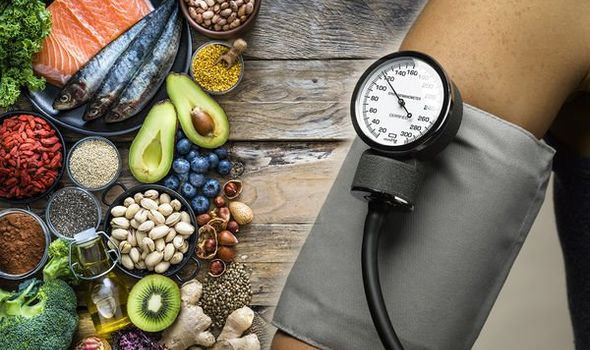Have you been diagnosed with high blood pressure?
Have you been told that your blood pressure runs a little high?
High blood pressure is a very common condition that unfortunately affects 47% of Americans as of the writing of this article. Controlling your blood pressure will involve making some healthy lifestyle changes. If your blood pressure is high enough then you may need to take medications to help.
In this article, we will focus on nutrition and more specifically which foods to eat and which foods to avoid to keep your blood pressure in check.
What is High Blood Pressure?
When your heart pushes blood through your arteries, it creates a certain amount of force against the artery walls. This force is what translates into your blood pressure. If your blood pressure stays consistently higher than it should be, you might have high blood pressure, also known as hypertension.
When we talk about blood pressure, we consider both systolic blood pressure and diastolic blood pressure.
Systolic Blood Pressure:
Systolic blood pressure measures the force blood makes on the artery walls when the heart contracts and pumps blood through your vascular system.
Diastolic Blood Pressure:
Diastolic blood pressure represents the pressure in the arteries when the heart is at rest between beats.
What is My Blood Pressure Goal?
According to the Eighth Report of the Joint National Committee on Prevention, Detection, Evaluation, and Treatment of High Blood Pressure Guideline (JNC 8), adults greater than 60 years old should be treated with blood pressure-lowering medications if blood pressure is greater than 150 (systolic) / 90 (diastolic). Adults less than 60 years old should be treated with blood pressure-lowering medications if blood pressure is greater than 140/90.

How Can I Manage High Blood Pressure?
If you have been diagnosed with high blood pressure, you may be prescribed an antihypertensive medication to help lower your blood pressure levels.
However, lifestyle modifications are also important as they can reduce blood pressure, prevent high blood pressure, enhance treatment when used with medications, and decrease adverse cardiovascular risks. Some simple lifestyle modifications include:
- Maintain a healthy body weight (BMI 18.5-29).
- Eat a healthy diet, such as the DASH diet.
- Limit dietary sodium to no more than 2.4 g per day.
- Practice regular physical activity (at least 30 minutes per day most days of the week).
- Limit alcohol intake.
The DASH Diet
The Dietary Approaches to Stop Hypertension or DASH diet is specially designed to help people with hypertension manage their blood pressure.
The diet focuses on healthy food sources such as fruits, vegetables, and low-fat dairy and limits sodium, saturated fat, and added sugar.
This diet also provides generous amounts of nutrients such as calcium, potassium, and magnesium, which help to control blood pressure.
Foods you can eat for High Blood Pressure
To maintain a healthy heart and control your blood pressure, focus on a diet thats rich in the following:
- Fruits such as strawberries, blueberries, oranges, bananas, and apples
- Vegetables such as cabbage, spinach, and kale
- Whole grains such as oatmeal and quinoa
- Low-fat dairy products such as low-fat milk and yogurt
- Skinless poultry
- Fish such as salmon and mackerel
- Nuts such as walnuts and almonds
- Legumes such as peas, lentils, and beans
- Vegetable oils such as canola oil
Food to avoid for High Blood Pressure
To keep your blood pressure under control, it is best to limit or avoid the following foods
- Red meat such as beef and pork
- Salty foods such as processed meat, salty snacks, pickles, olives, canned soup, cheese, and tomato sauce.
- Sugary foods and drinks such as prepackaged meals, soda, and fruit juice
- Alcohol should be limited to one drink per day for women and two drinks per day for men.
High blood pressure is a serious problem, but a healthy diet rich in fruits, vegetables, and whole grains and limited in salt, saturated fat, and sugar can help control and prevent this disease.
Dr. Sergio Guiteau is a physician who is board certified in Family Practice and Sports Medicine with added certifications in Aesthetic Medicine. He specializes in Preventive Medicine, Sports Medicine, and Anti-Aging Medicine and blogs on Advancedrejuv.com/blog

